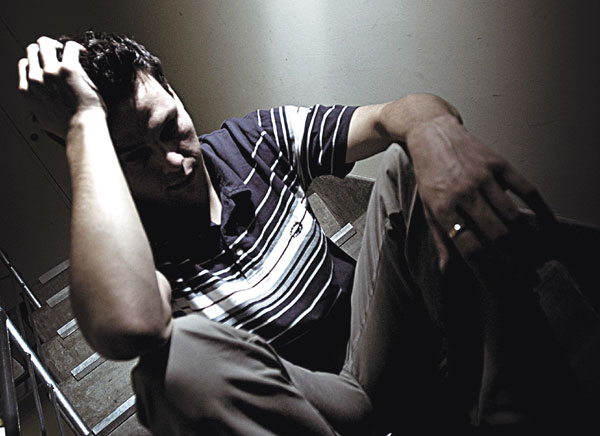While everyone experiences moments of sadness in their life, there are ways to take a depression test to discover if you are more than just a little bit sad. In our depression test, you can evaluate your symptoms to find out if you are depressed and may need professional help.
Everyone goes through life changing events or daily stresses that might leave them to feel sad frequently. But does this mean they are depressed? For about 18.8 million Americans, depression is an apparent reality. However about 80 percent of the people who do suffer from depression are not seeking professional treatment. Depression is one of the nation’s leading killers among men and women resulting in cases of suicide or other illnesses, which is why it is important to seek treatment. If you are seeking out a depression test then you are actively taking a role in trying to determine whether you or a loved one is suffering from depression. Taking a depression test can help you determine whether or not you might be experiencing the symptoms of depression and could be a good indicator as to whether or not you or your loved one should seek professional medial treatment.
Depression test:
- Have you experienced a prolonged feeling of lack of interest or pleasure in activities that used to make you happy?
- Do you feel down, depressed or hopeless frequently or constantly for more than a week?
- Do you have difficulty sleeping or with sleeping too much?
- Do you feel lethargic or have little energy?
- Do you have little appetite or frequently experience overeating?
- Do you feel like a failure or that you have let yourself or your family down?
- Do you have trouble concentrating at work, at home, reading or watching television?
- Do you have thoughts that you would be better off dead, or have desires to hurt yourself in some way?
If you have experienced any of the above symptoms and have had them persist for several days or occur frequently throughout the week, it might be time to consult a professional therapist or counselor about your condition. Depression is extremely common, so don’t feel embarrassed to confront the problem. Unfortunately because most people with depression do not seek counseling they end up with worsening symptoms and problems living their day-to-day life.
Other symptoms of depression include feelings of sadness or unhappiness, frustration or irritability over small issues, loss of interest in activities that used to be fun, reduced sex drive, changes in appetite, changes in weight, slowed thinking or body movements, indecisiveness, decreased concentration, fatigue, feelings of worthlessness, trouble thinking and remembering things. Some of the most serious symptoms of depression include frequent thoughts of death, dying or suicide, crying for no reason or crying over everything, other health issues like anxiety, excessive stress, heartburn and chest pains. Those with depression might have difficulty in going to work or doing chores around the house and taking care of themselves the way they used to. Personal hygiene might be something that is left to the wayside. If you are experiencing any of these symptoms, it is important to get help as soon as possible especially if you are experiencing feelings of desire to commit suicide or self mutilation. Even if you are experiencing mild symptoms, get help as soon as you can because the symptoms, if left untreated, will only get worse. Once the symptoms get worse, the depressed person is likely to be even more unwilling to seek treatment because they don’t care anymore or don’t have a desire to get help for themselves. If a loved one is experiencing these signs of depression, it is important to encourage them to get help immediately. Even if they are unwilling to help themselves, it is important for you to help make them see how vital it is for them to get help.
There are a variety of treatment options. Counseling and therapy are typically the starting point for many who suffer from depression. Most of the time underlying emotional issues and stress are contributing causes of depression. Some people are also more likely to become depressed based on their genetics and life experiences. For those whose symptoms do not go away with therapy, a doctor may be interested in prescribing antidepressant medications to help assist in alleviating the symptoms of depression. If you are afraid you might not be able to afford professional help, there are many assistance programs or fee counseling and support groups that can help subsidize the cost of counseling to ensure you can receive treatment for your depression.
Sources: mayoclinic.com, upliftprogram.com




